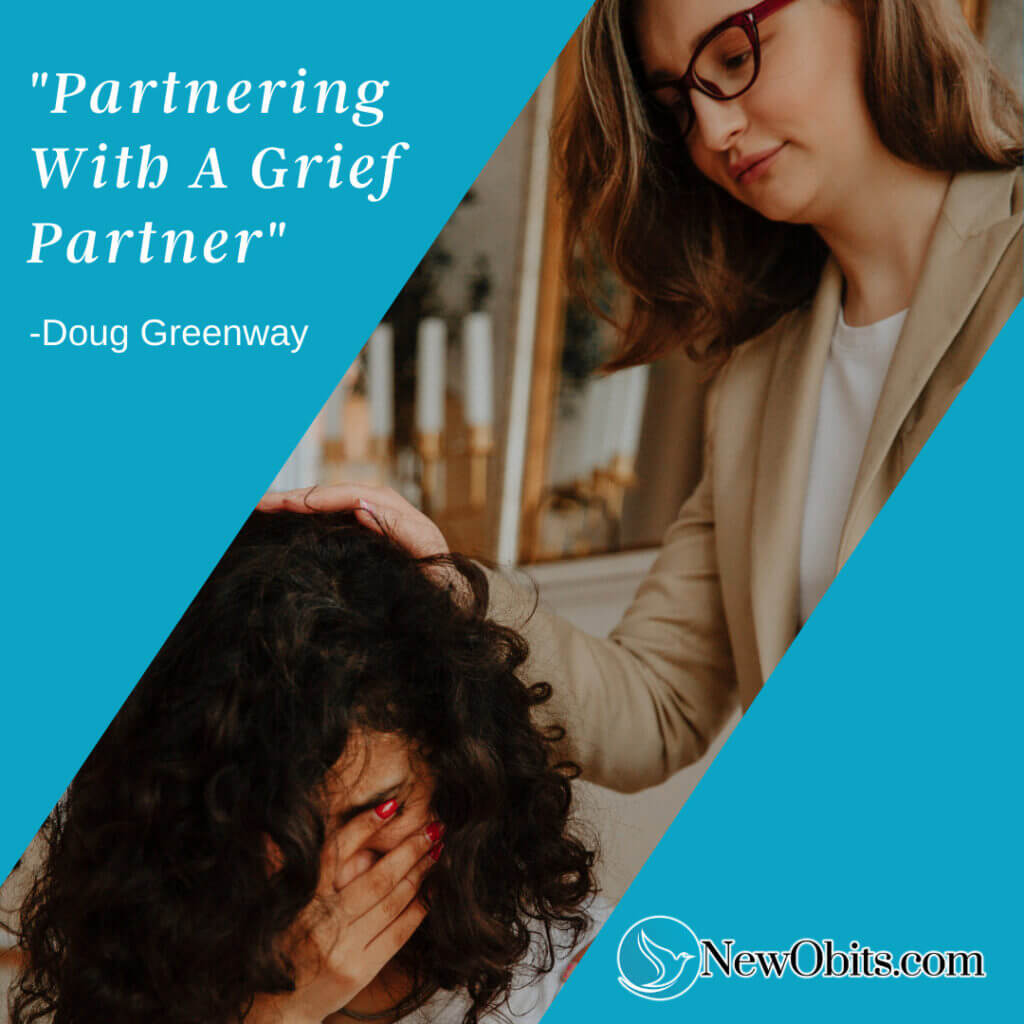
We talk quite frequently in this blog about the importance of finding a grief partner that will help you get on track and stay on the right track to recovery. You need a partner, whether or not you’ve chosen to work alone through your grieving. Last week we reminded ourselves that our primary and lasting partner in grief needs to be God!
(1) What’s the duration of the partnership? I would suggest that you count on at least six weeks. Once or twice a week you will connect to your partner or they will connect with you. Choose a same-sex partner, unless you find a competent professional counselor or a close family member that you want to try. There are advantages and disadvantages to everything and a fresh set of eyes and ears with a Licensed Professional Counselor (LPC) or your local minister might be the way to begin, A few sessions may be all that you need.
Meeting #1 should last about 60-90 minutes and be informal and private. It’s a get-acquainted time, but if the counselee is of the opposite sex, I would advise bringing a friend along, and if the griever prefers, the friend can wait in an adjacent office. All counseling offices should have a window in the door, or I prefer to ask permission for my wife to sit in on our sessions. Her graduate degree isn’t in counseling, but she has overcome tons of losses.
Talking about your losses may well bring tears. If I am providing the meeting place, I provide the tissues. As a rule, silence all cell phones, prepare the tissues, offer coffee, tea, or water, and make introductions at the beginning. In the middle of a grieving meeting, such activities as those just mentioned often derail the progress you’ve just begun making. James and Friedman in The Grief Recovery Handbook suggest that the griever and support person just try to see themselves as two friends having a conversation about a subject of mutual interest. “Think of yourself as a heart with ears as you listen to your partner.”
(2) Commit to see the process through. A wise minister or other confidants will know when to refer you to a professional, and you should commit to take their advice and go. My wife and I have a commitment with each other that either or both of us will go to therapy if the other thinks we need to go. Before we got married, I went alone to a session with a very qualified counselor for one session, and then she went for one session. Then we both met with the counselor for a third session together. Then the counselor dismissed us, with his blessing. We still have that agreement to go, and she has sent me back to see the same therapist once for one session just a few years ago. I went.
What will your grief partner look like? John 5:5-6

Doug Greenway
These blog articles are written by the retired minister and former educator and counselor, Doug Greenway. He'd love to hear from you with your comments, questions, or suggestions for future topics. You may reach Doug at doug_greenway@yahoo.com.

What if you have a friend who is on a real pity pot? She did lose a son but she tells everyone that she had no place to live, her dog died and she can’t stop crying. I understand she has reason to cry over her son but she just keeps and always telling strangers and putting it out there for all to hear. Like she is begging for help. AND, her Dr. set her up with a psychologist and she will not go. She went one time and like what she said about getting a new dog and she has not been back. She also refuses to go to Al Anon. I would like to help her but I always say the wrong thing.